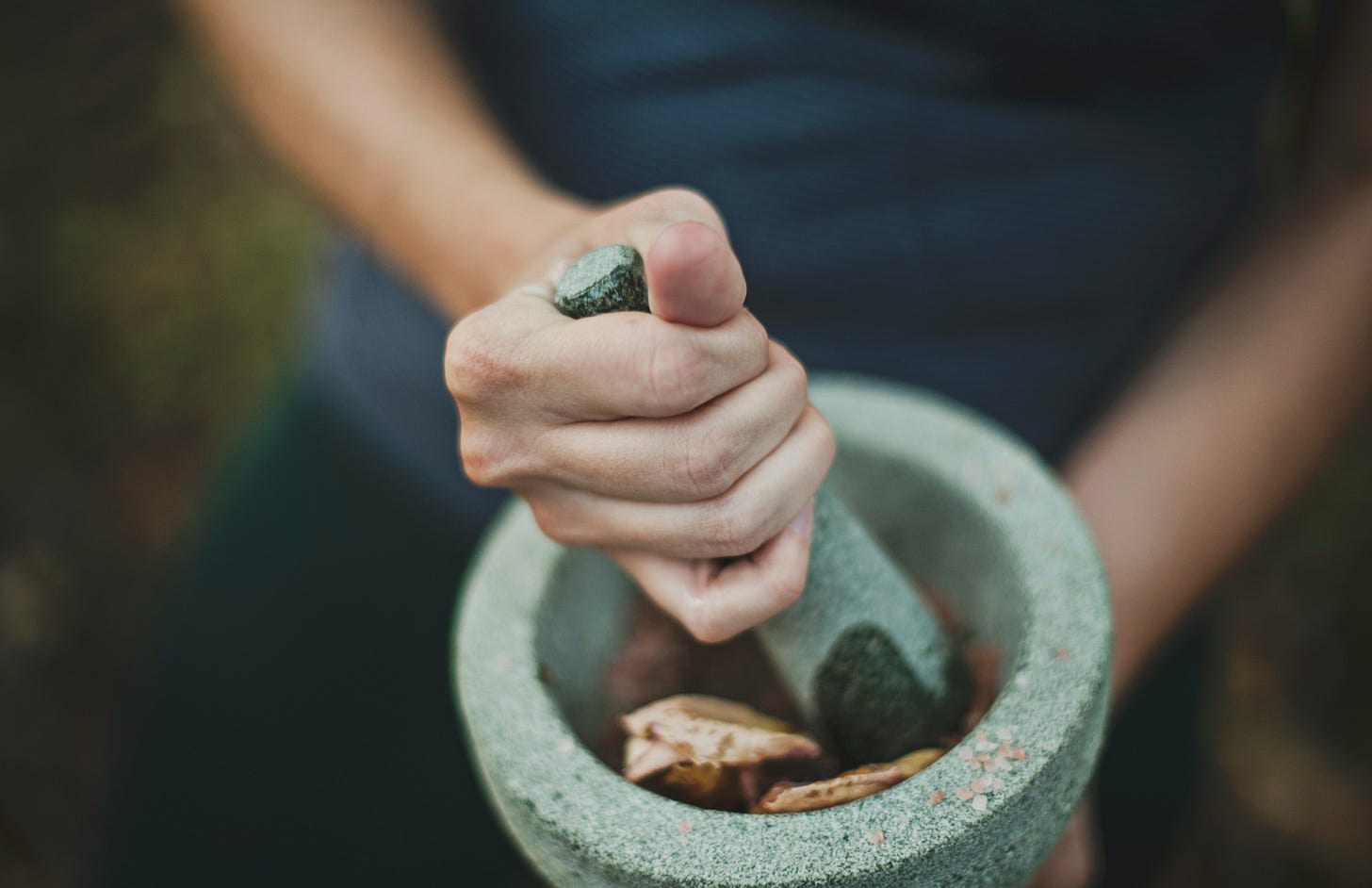Postcard from the Edge
Ingredients

Some days, just starting is hard work, and there’s a real temptation to go back under the covers. Maybe, I should turn the radio off after ‘Farming Today” before I hear some Minister extolling the virtues of the changes in OFCOM to ensure that the BBC is free from bias, like say, GB News, or the Daily Express. I’m sure it has nothing to do with it being election year or said Ministers being just the tiniest bit apprehensive about any serious journalist asking uncomfortable, important questions.
Then, as the day starts, I remind myself that we become the average of what we surround ourselves with, and media, as much as the company we keep, compounds for good or ill. We become what we put into our own sensory mortar and pound away at with the pestle of our attention.
Fakery and duplicity are as old as time, although we have industrialised mass communication and advertising and have normalised it with social media. Even the Economist, not the most radical of publications, suggests this week that we are very close to, or maybe at the point, where we cannot separate fake from genuine.
Provenance looks like making a comeback, moving from luxury goods and fine wines to everyday communication, as reliable information becomes as fragile as supply chains.
We are perhaps at the end of a hundred-year cycle, started in earnest by Edward Bernays and ending with our current media, where we became seduced by the power of instant access to information and became unthinking consumers.
Artificial Intelligence has enormous potential, provided we do not meet it with Authentic Stupidity and doing that requires us to pay real attention to the ingredients we put into our information mortar, and the pestle of the company we keep.

